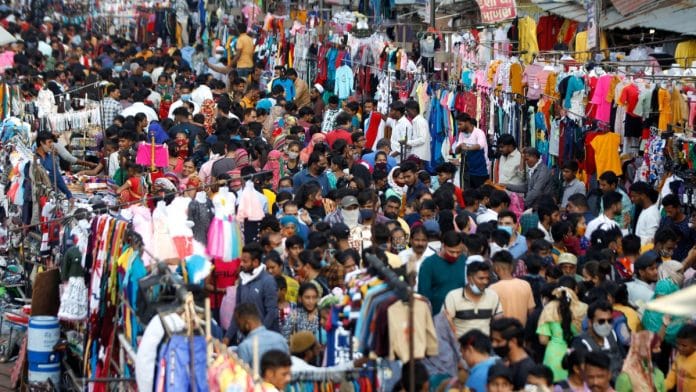New Delhi: Indians see terrorism as one of the biggest threats facing the country, above disease outbreaks and false information online, while climate change and condition of the global economy rank lower on the list, according to a new Pew Research Centre report on public perception of global threats titled ‘International Opinion on Global Threats’.
The report, based on a survey conducted between 8 January and 26 April, found that 79 percent of Indians surveyed view terrorism as the biggest concern, while 71 percent see the spread of infectious diseases as the second largest threat and 70 percent consider the spread of false information online as the next highest concern.
The report released on 19 August is based on responses gathered in 25 countries on perceived global threats: false information online, terrorism, global climate change and spread of infectious diseases and the condition of the global economy. It follows similar surveys conducted in 2013, 2016, 2017, 2018, 2020 and 2022.
A median of 69 percent of the 28,333 adults in 25 countries who took the survey consider terrorism a major threat, while 26 percent view it as a minor threat and 6 percent do not acknowledge it as a threat at all.
Turkey tops the charts with 91 percent of respondents there viewing terrorism as the biggest threat to their country, followed by 89 percent of Nigerians and Israelis.
A median of 60 percent of the respondents who took the survey view the spread of infectious diseases as a major threat, while 30 percent see it as a minor threat and 5 percent do not view it as a threat.
The survey found that 91 percent of adults in Brazil view the spread of diseases as the biggest threat to their country.
Elsewhere, 88 percent of Kenyans and 87 percent of Turks surveyed consider the spread of infectious diseases as the second biggest threat, while 85 percent of adults in Argentina and 76 percent of adults in South Africa recognise it as the biggest threat to their respective countries.
An average of 72 percent of respondents across the 25 countries viewed spread of false information online as the biggest threat, while 21 percent consider it a minor threat and 5 percent don’t perceive it as a threat at all.
Dissemination of false information online is regarded as a prime concern among 85 percent of respondents in Poland, followed by 85 percent of Brazilians, 82 percent of South Koreans, 81 percent of Germans, 74 percent of the Dutch, 73 percent of UK nationals, 72 percent of Greeks and 70 percent of Americans.
A median of 67 percent of respondents in the 25 countries view climate change as a major threat, while 24 percent see it as a minor threat and 9 percent do not see it as a threat.
The latest survey also found that 55 percent of Indians surveyed view global warming as the fourth biggest threat to the country. In Europe, 67 percent in Germany, 66 percent in the Netherlands and 64 percent in Sweden view climate change as the second biggest threat.
A median of 70 percent of adults in the 25 nations surveyed felt that prevailing global economic conditions are a primary concern while 27 percent consider this threat as minuscule and 4 percent did not view it as a threat. But in India, only 49 percent viewed it as a matter of grave concern. For 85 percent of Greek nationals, global economic conditions are the main concern, followed by 81 percent of Kenyans and 79 percent Turks.
Kasturi Walimbe and Neetu Sharma are alumni of ThePrint School of Journalism, currently interning with ThePrint.
(Edited by Sugita Katiyal)
Also read: Fewer South Koreans & Israelis, more South Africans now see India favourably—latest Pew survey






